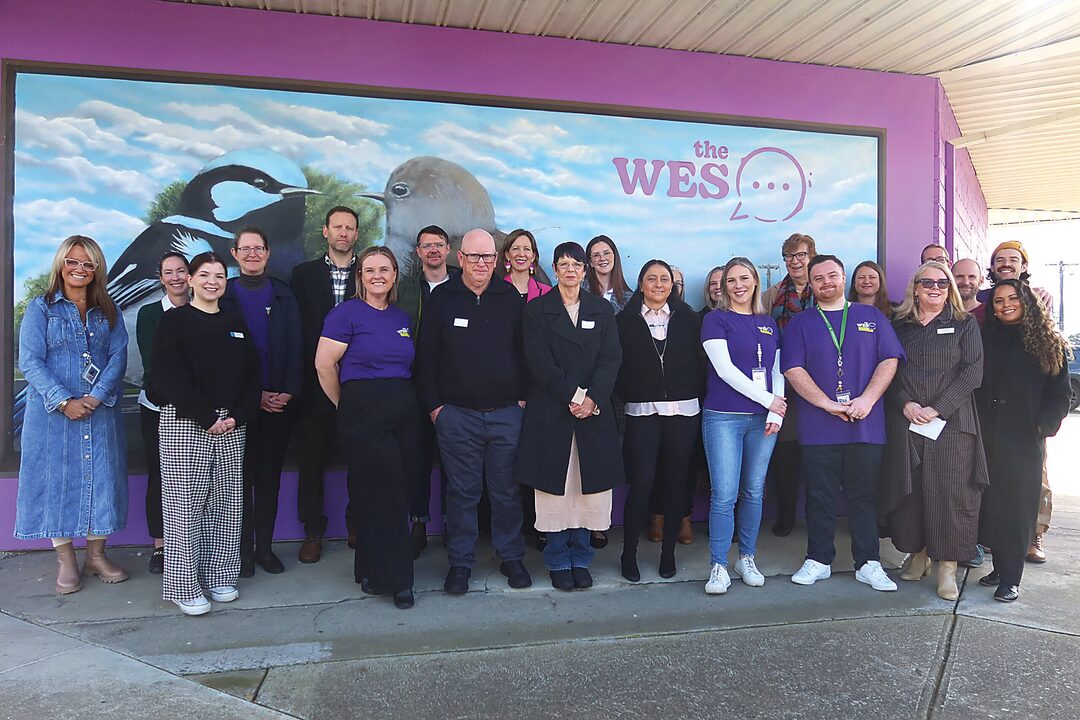By BLAKE METCALF-HOLT
IN light of the recent defunding of the Latrobe Health Assembly, many vital community initiatives have been put at risk – that includes the Wellbeing and Emotional Support (WES) centre in Morwell.
The free, after-hours mental health support service caters to anyone in need aged 16 or older. But without urgent intervention, the WES will be forced to close its doors in the coming months.
Team Leader of Mental Health, Wellbeing and Emotional Support at the WES, Rachel Matthews Ikin said that “the impact on the community would be awful” if it was to cease.
“When the doors close, it’s going to be a significant hit,” she stated.
“We can do everything we can by trying to identify the community supports that they (participants) can access outside of here, which is what we’re doing … but it’s just not the same.”
One look inside the WES and you’ll instantly warm to the vibrant, café-styled sanctuary that sees north of 30 regulars, plus many more, who stop by in need of a conversation or some elevation from life’s hardships.
The site, located on the corner of Princes Drive and Buckley Street, has become a critical safety net for the Latrobe Valley community, especially for those who may not otherwise have access to mental health support.
The WES consists of no referrals, waitlists or judgement, making it an easy entry point for those seeking alternative options.
Founded in 2023, originally led by Lifeline Gippsland and now paired with Wellways, the WES has forged great and everlasting relationships with those in the community who utilise the space and their services.
The WES has stretched itself across the Latrobe Valley and supported more than 1000 people over the last two years.
Ms Matthews Ikin stated that many who arrive through the doors are ones that haven’t had good experiences with traditional mental health services, and instead flock to an environment that displays above-and-beyond compassion and care.
“We come from our own lived experience, I think, which helps us to be able to empathise, but we’re all about meeting people where they are at,” she said.
“There’s no judgement, we’re not trying to fix them. We just walk alongside them and help identify their strengths, their goals, and try to work on things step by step.”
Social connection is one of the key elements that the WES provides to help people through times of struggles, which includes a wide range of groups and activities on offer.
The WES prides itself on being a part of people’s wellbeing plan, and has kept many out of the emergency department, something staff member Jacob Hardy knows first-hand.
“I can think of instances where people have been suicidal with a plan that have come in, and I’ve been able to sit with them and have conversations and support them in that immediate crisis,” he said.
“Get them support, get them help, and personally heard of a few of those after that are changing things and getting on the mend.”
Mr Hardy is honoured to be that direct person for someone to lean on, even if it’s during a period of loneliness or if its life and death, and fears that losing options could be catastrophic for those in need of them.
“To no longer have that accessibility scares me for Latrobe Valley, as there’s people who might be at that point (where) walking through the door and signing all these forms and trying to get in that way, they just don’t have the energy to do it when you’re at that point,” he said.
Staff acknowledged it’s not ideal timing for those, especially regulars, currently utilising their services, and that many participants are in denial of its closure.
One regular of the WES, Tim Bell, believes it’s a slap in the face that such a helpful service is losing its funding, especially after his experiences elsewhere in the mental health sector.
“To have had nothing but bad experiences with conventional mental health services, only to eventually find fulfilment at a service convenient and common sense as the WES, and then find they’ve lost their funding, well, it strikes me as the height of absurdity,” Mr Bell said.
“I’m not sure how state authorities in charge of funding mental health services can be understood as competent if they’re willing to withdraw funding from such a uniquely useful service.”
A newer participant, Caleb Hunter, who’s been attending the WES for about six weeks, said it’s been helpful and encouraging during his time there.
“If you ever wanted to talk, they provide that, which is fantastic. The other people here are really good to get along with as well, hearing their stories and where they’ve come from,” he said.
Mr Hunter said it would be devastating if the WES was to close.
“I believe there should be more places like this for the community, so that we have more support for the people,” he added.
Regardless of the news, staff are soldiering on and are still focussed on supporting those in need, despite their own uncertainty and grief over the situation.
“Even though they (the staff) need that job security, they’re wanting to be here right to the end, because they love it here,” Ms Matthews Ikin said.
“We have a really good team, but they’ve made connections with these people, and our heart is breaking for them.”
A recent gathering was held on July 31 alongside Latrobe Health Assembly and Wellways to protest the defunding of the Latrobe Health Assembly (LHA) and discuss the benefits and avenues for the WES.
Under the banner of Investing in The WES: Wellbeing & Emotional Support in Gippsland, passionate conversations were had on how the service could continue beyond the end of its funding cycle this year.
Attendees heard directly from the local community, WES staff and peer support workers about the WES’ impact, with other attendees such as Lifeline Gippsland, Regional Development Victoria, the Gippsland Centre Against Sexual Assault, and Latrobe Regional Health.
LHA and Wellways has extended the conversation beyond Morwell and invited others to contribute ideas to allow the WES to continue to operate with new funding from alternative sources.
Given the WES is opened three days a week, there is opportunities for other organisations to rent out the space on days it is not open.
The LHA will permanently close at the end of November, leaving 27 health programs it funds in the region out of pocket.











